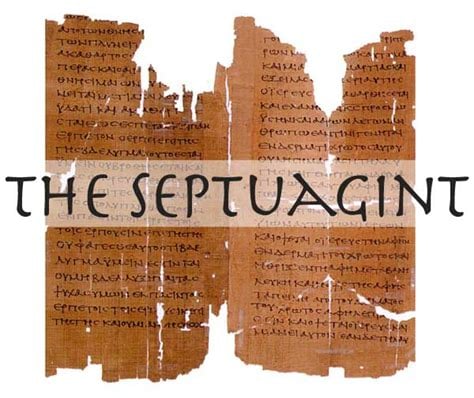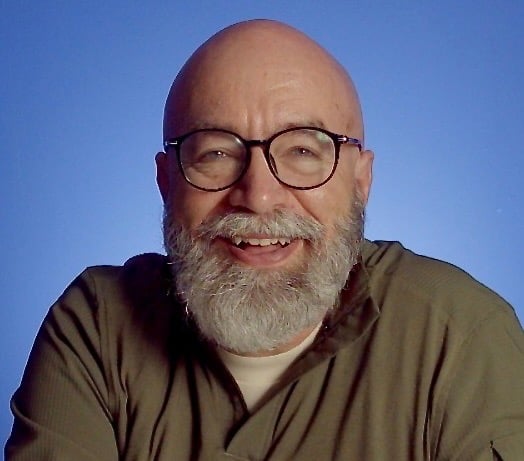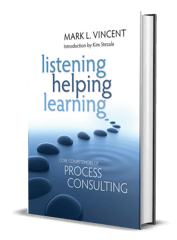This blog post took several days to assemble. It finally landed today -- the day before publishing it -- and a day when the Maestro-level leader cohort I facilitate had its monthly morning meeting.
We always take the first thirty minutes of gathering to consecrate our time somehow -- passing responsibility for it around the group. My turn this month.
We considered a heady passage from the Letter of Aristeas, part of what scholars collected as the Pseudepigrapha. This letter gives an account of a masterstroke of the Jewish High Priest at the tail end of the Greek empire, when one of the most vital centers of culture and learning was Alexandria, Egypt. Ptolemy II was the Emperor and determined to have the largest repository of information in history -- the whole internet of his time -- a library of 500,000 volumes. He and his librarian learned that they did not have Jewish literature, especially its scripture. They reached out to the Jewish community, having returned from exile to their homeland, wanting to know if a Greek translation could be arranged. These scriptures could then be added to the library.
Here is where the masterstroke comes into play -- something possible only when thinking long-term and big picture and with generations to come deeply in mind. The high priest points out that this could be possible if the 100,000 Jews still enslaved by Egyptians under Ptolemy II's Father were set free. The result would be a Jewish community in and around Alexandria. They would benefit from access to their scriptures and in what had become their native tongue. This matter was brought to the Emperor. Ptolemy II learned of this embarrassment that grew from his Father's wars and agreed to set them free and even make reparations for their slavery. The high priest then appoints those who would craft what became known as the Septuagint.

These moves between a bibliophile in Egypt who held vast political power, and a religious leader in Jerusalem who sought the welfare of his people, helped to keep a threatened culture together, and it produced a work many preachers, teachers, theologians, and scholars still use.
For our consecration time, we considered two heady paragraphs from the opening of this letter. Aristeas is writing his brother with this account of how the Septuagint came to be.
Caution! Before you read it, you can't just glance at this. It requires reflective space and time to read it several times so that its message can sink in.
"…your scholarly disposition, which is a supreme quality in any man who has tried continually to increase his learning and understanding, whether from the accounts of others or by actual experience. This is the way in which a pure disposition of the mind is acquired, by the attainment of the noblest ends, and which, turning to piety, the highest of all ends, lives by adopting a rule which does not err."
"…you are studiously disposed toward what can help the mind and it is my duty to share this with all like-minded persons, and all the more so with you, for you have a kindred spirit, being not only a blood brother in character but also in the pursuit of beauty, the same as we are. The value of gold or any other treasure among those highly prized by the empty-headed does not possess the same value as compared with the pursuit of culture and caring for these things."
And here are the discussion questions we considered:
- What Maestro-level leader themes do you find here?
- What calls to you the most from this text and why? Does this bring anyone else you know to mind?
We agreed that taking the time to focus and digest these words was much the same as listening to someone telling us something important. And we admitted we only listen to the surface in our rush, rather than taking in the richness and usefulness of the message. And this sort of reflective, executive-level thinking is where the breakthroughs and forward surges come that bless the world. It sets people free!
At the end of our discussion, I was asked why it was I chose these paragraphs from an obscure letter written a couple of millennia ago. My answer? Because as I read it, I found my soul singing. I want to be one of those kindred spirits who have a rule of life that builds value and culture, and beauty so that others can flourish.
It is available!
And a SPECIAL ANNOUNCEMENT: Kristin and I are recruiting a special Maestro-level leaders cohort in partnership with the Christian Leadership Alliance. It is available for non-profit leaders at a special price, and it includes membership in the Alliance. Navigate here to learn more. You can sign up by writing directly to me at:
marklvincent@maestrolevelleaders.com
Tags:
Process consultation and design, Mark L. Vincent, Design Group International, Maestro-level Leaders, The Third Turn, The Third Turn Podcast, Future Value, Kristin Evenson, Future Generation, Third Turn Blog
May 26, 2022

Comments